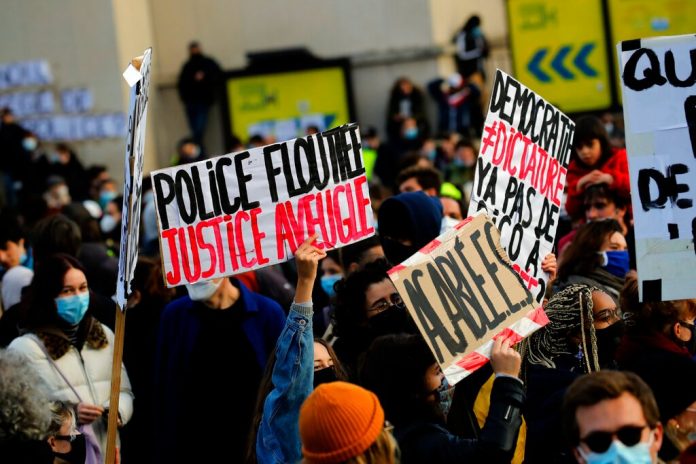
PARIS: French Prime Minister Jean Castex said Thursday that the government would review the wording of a controversial draft law that would place restrictions on citizens filming the police and publishing the images.
In the wake of a new scandal over police brutality that has led to fresh pressure to backtrack, Castex announced that he was going to set up “an independent commission with responsibility for proposing a new wording for Article 24”.
Article 24 of the “Comprehensive Security” law, passed during a first reading by the lower house of parliament on Tuesday, would criminalise the publication of images of on-duty police officers with the intent of harming their “physical or psychological integrity”.
Media groups in France, including AFP, have raised alarm about the possible impact on journalists covering police operations, while other critics say the wording is intended to dissuade citizens from videoing police and holding them accountable.
The law has led French and UN rights experts as well as the European Union to express concern about its possible impact, while thousands of protesters have already made their opposition clear in street protests.
Supporters of the law, above all Interior Minister Gerald Darmanin, say it is necessary to protect the identity of law enforcement officers who are at risk of harassment, threats and violence.
Mobile phone footage of police brutality has played a key role in recent scandals in France, as well as in the global uproar over the death of George Floyd during his arrest in the US in May.
On Thursday, video images of three police officers beating a black music producer inside his studio in Paris caused an outcry that saw politicians, footballers and millions of social media users express their disgust.
After clearing the lower house, the draft security law would now need to be approved by the Senate. Some experts believe it could also face censure from France constitutional court.



